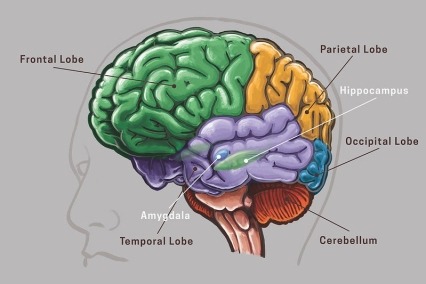Purpose

The purpose of NIDA’s SCORCH (Single Cell Opioid Responses in the Context of HIV) Program is to support generation and sharing of single nucleus RNA-sequencing and epigenomic data sets for brain regions relevant to persistent HIV infection and opioid use disorder (OUD).
Funding
Since initial funding of two SCORCH data generation projects through RFA-DA-19-037, SCORCH data generation has been expanded beyond OUD to include cocaine or methamphetamine, or cannabis use disorder through RFA-DA-21-019, NOT-DA-20-063, and RFA-DA-23-004.
In parallel through RFA-DA-19-038, a SCORCH data coordination, analysis, and scientific outreach center was established to standardize and share single cell molecular HIV/SUD data generated by this program with the scientific community by ensuring that the data is FAIR (Findable, Accessible, Interoperable, and Reusable).
Significance
If fully successful, the SCORCH project will
- Establish cell type-specific gene expression differences in particular brain regions, potentially enabling precision genetic or pharmacological manipulation
- Reveal the molecular effects of HIV infection/treatment in the CNS, providing potential targets for addressing HIV persistence and/or HIV neurobiological sequelae
- Uncover cell type-specific gene expression and epigenomic changes resulting from chronic opioid, cocaine, methamphetamine, and/or cannabis exposure providing potential novel therapeutic targets to treat addiction
- Identify potential synergistic effects of chronic addictive substance exposure and HIV infection in the CNS
SCORCH Scientific Overview
Fifteen data generation projects currently perform single nucleus transcriptomic or epigenomic assays on HIV/SIV/EcoHIV and/or SUD-relevant brains from human, primate, rat, or mouse. Some brain regions currently targeted include prefrontal cortex, dorsal and ventral striatum, nucleus accumbens, habenula, and hippocampus. For more detailed information, please see the SCORCH program website or individual abstracts of the funded projects below. Additional NIDA NExUS Collaboratory projects have been funded to complement the SCORCH program.
Funded SCORCH Projects:
- NeMO Archive: SCORCH Support, Coordination, and Outreach (UM1DA052244), University of Maryland Baltimore (Owen White, Timothy Tickle)
- Single Cell Transcriptomics of the Opioid Use Disorder and HIV Syndemic in the Human Brain, (UM1DA051411-01), UCSD (Christine Cheng, Suryaram Gummuluru)
- The Y-SCORCH Data Generation Center at Yale for Single-Cell Opioid Responses in the Context of HIV (UM1DA051410-01), Yale University (Serena Spudich, Mark Gerstein, Yuval Kluger)
- Single nuclei transcriptome profiling in addiction circuitry of the HIV+ brain (U01DA053600-01), Icahn School of Medicine at Mount Sinai (Schahram Akbarian, Susan Morgello)
- M-SCORCH: Methamphetamine use disorder data generation center for Single Cell Opioid Responses in the Context of HIV (U01DA053628-01), Yale University (Ya-Chi Ho, Nenad Sestan)
- Single cell brain transcriptome changes during chronic HIV infection and opiate use in conventional mice (U01DA053629-01), Icahn School of Medicine at Mount Sinai (Paul Kenny, David Volsky)
- Uncovering HIV/opioid effects in the brain at the single cell level: transcription, chromatin accessibility, and reservoir analysis in the SIV/cART/morphine/rhesus monkey model (1U01DA053624-01), UNMC (Howard Fox, Shilpa Buch)
- Single Cell Transcriptomic and Epigenomic Dissection of Opioid and Cocaine Responses in HIV (1U01DA053631-01), MIT/BROAD (Manolis Kellis, Myriam Heiman)
- Revealing the single cell determinants of brain relevant to persistent HIV infection and opioid use disorder(1U01DA053630-01), UCSD (Tariq Rana)
- Integrative Single Cell isoform and chromatin accessibility Mapping of Chronic Opioid Exposure in Cognitive Brain Areas in HIV (1U01DA053625-01), Weill Cornell Medical (Hagen Ulrich Tilgner, Teresa A. Milner, Lishomwa C. Ndhlovu)
- Single nucleus gene expression in moderate and compulsive drug self-administration in a rodent model of HIV (1U01DA056004-01), Scripps Research Institute (Pietro Sanna)
- Single cell transcriptomic and epigenomic changes during chronic HIV infection and cocaine self-administration (1U01DA056003-01), Allen Institute (Hongkui Zeng, Paul Kenny, David Volsky)
- Single Cell Transcriptomics of the Cocaine Use Disorder in the Context of HIV (1U01DA056006), UCSD (Christine Cheng, David J. Moore, Stephen A. Spector)
- Elucidating single cell changes in neurogenic brain regions during HIV and cannabinoid exposure, (U01DA058527-01), Weill Cornell Medical (Lishomwa C. Ndhlovu, Michael Jay Corley, Dionna Whitney Williams)
- Single cell determinants of brain in the context of viral persistence in SIV/cART/cocaine non-human primates, (1U01DA058402), UCSD (Tariq Rana, Shilpa Buch)
- Single nucleus gene expression in moderate and compulsive opioid self-administration in a rodent model of HIV, (1U01DA058399), Scripps Research Institute (Pietro Sanna)
Questions?
Several DNB staff work on SCORCH including John Satterlee Ph.D. and Susan Wright Ph.D. as program officers with Anne Tsai Ph.D. and Holly Moore Ph.D. as project scientists. If you have questions about SCORCH, please contact John Satterlee